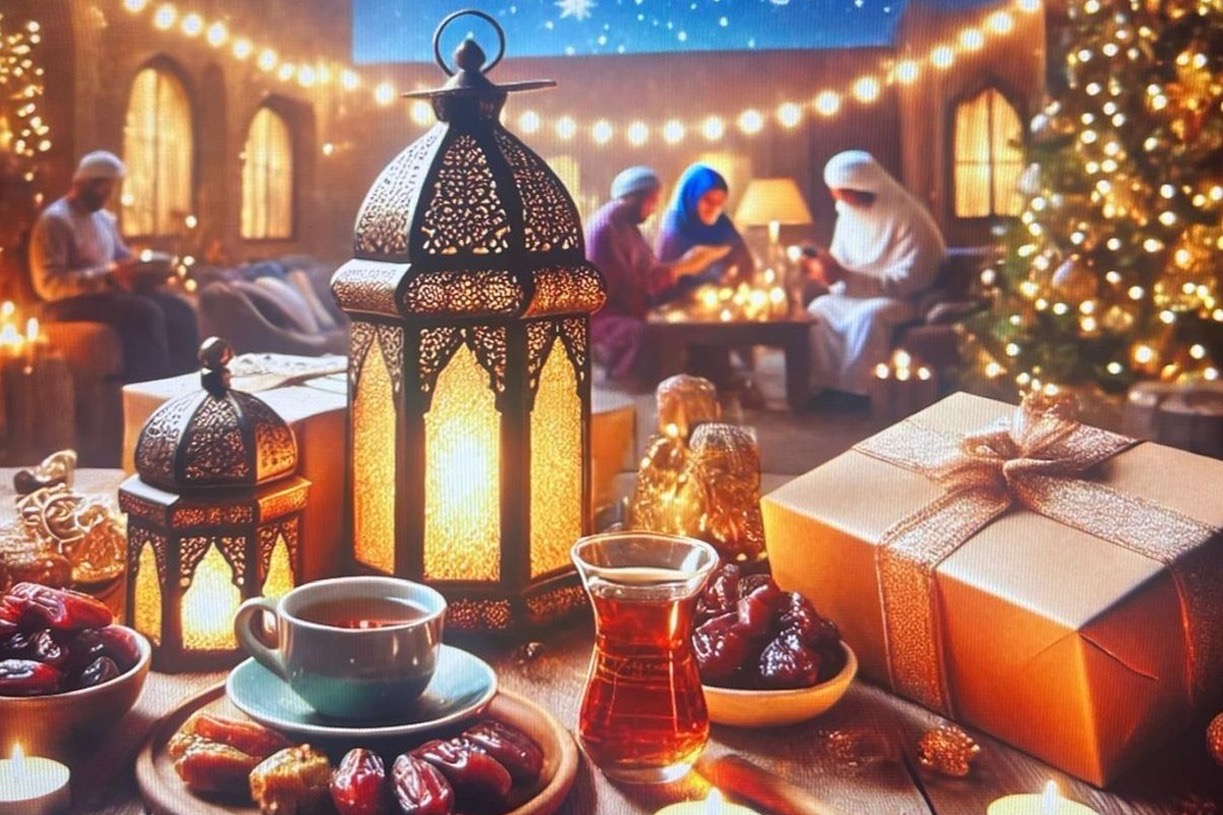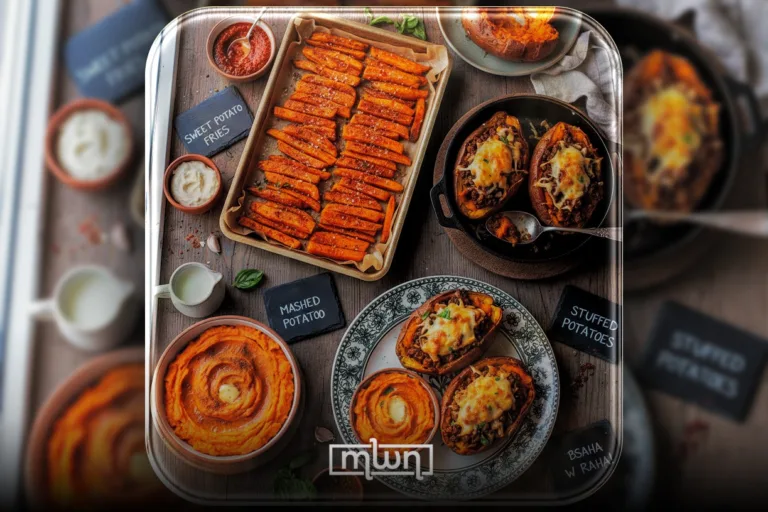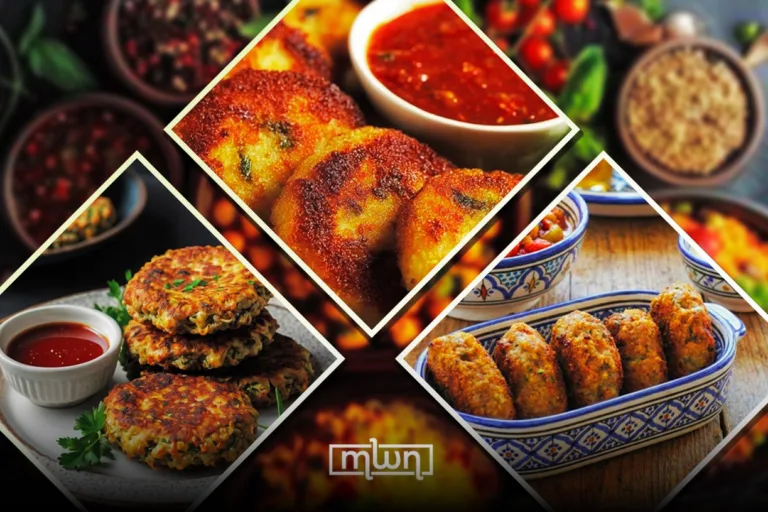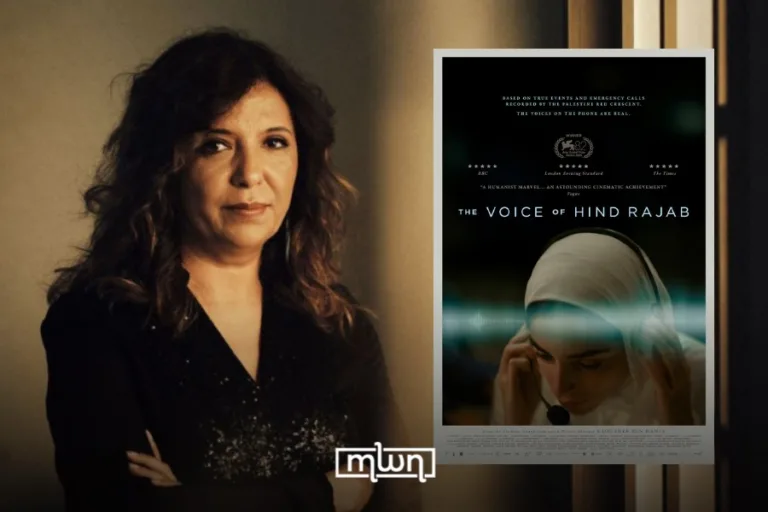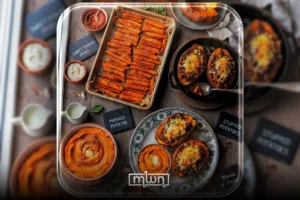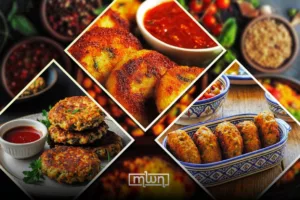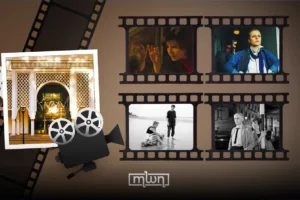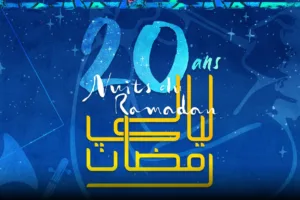It’s Ramadan — the call to prayer echoes through the streets, signaling the moment of ftour.
Marrakech – You’re seated at a table draped in embroidered fabric, a steaming bowl of harira in front of you, and suddenly — it’s game time.
Ramadan in Morocco isn’t just about fasting; it’s also about feasting.
A paradox? Absolutely. But there’s something almost poetic about the way we spend all day in a state of spiritual restraint, only to break our fast in the most extravagant way possible.
I mean, have you ever tried stopping at eating just one chebakia? It’s physically impossible.
The classics never fail: harira, that rich, tomato-based soup packed with chickpeas and lentils, warming your soul (and probably your hands, because that bowl is always way too hot).
Then there’s the sellou, a seemingly innocent pile of nutty, buttery crumble that somehow finds its way into every crevice of your outfit.
And don’t even get me started on briwates — tiny, golden triangles filled with either almonds or spiced meat, because in Morocco, we don’t do food minimalism.
But let’s talk about the real ftour MVP: the never-ending cycle of tea.
Mint tea, to be specific. It starts as a delicate pour, just one glass to help with digestion.
Fast forward 30 minutes, and you’re five cups deep, buzzing from both sugar and caffeine, wondering if you’ll ever sleep again. (Spoiler: you won’t.)
And yet, every night, we do it all over again.
The gathering, the storytelling, the shameless second (and third) rounds of mssmen dripping in honey.
Ramadan in Morocco is more than just food — it’s ritual, community, and the deliciously shared struggle of eating way too much, only to wake up and do it all over again.
Because if you don’t overeat at ftour, did Ramadan even happen?

